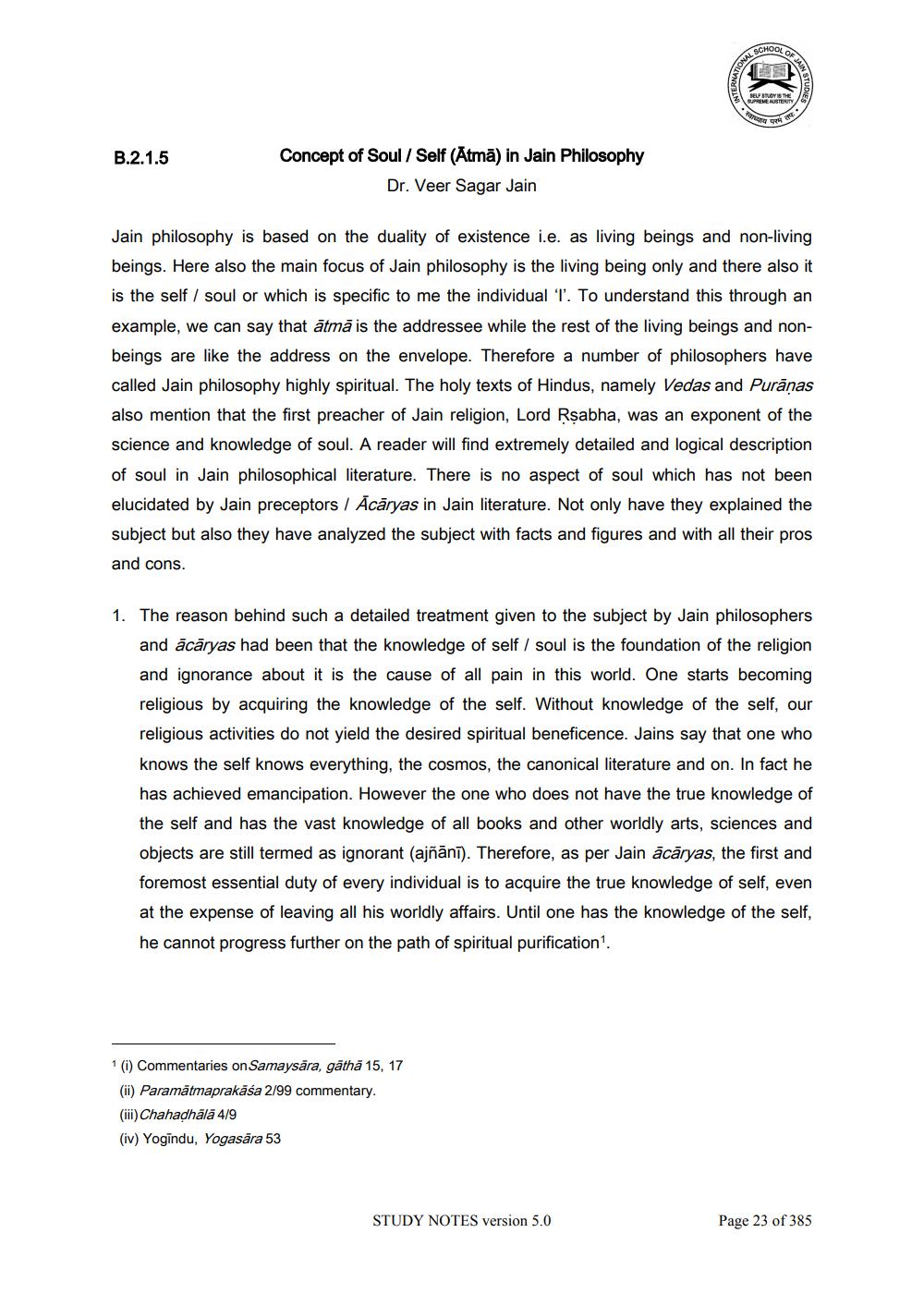________________
B.2.1.5
Concept of Soul / Self (Atmā) in Jain Philosophy
Dr. Veer Sagar Jain
Jain philosophy is based on the duality of existence i.e. as living beings and non-living beings. Here also the main focus of Jain philosophy is the living being only and there also it
he self / soul or which is specific to me the individual l. To understand this through an example, we can say that ātmā is the addressee while the rest of the living beings and nonbeings are like the address on the envelope. Therefore a number of philosophers have called Jain philosophy highly spiritual. The holy texts of Hindus, namely Vedas and Purānas also mention that the first preacher of Jain religion, Lord Rsabha, was an exponent of the science and knowledge of soul. A reader will find extremely detailed and logical description of soul in Jain philosophical literature. There is no aspect of soul which has not been elucidated by Jain preceptors / Ācāryas in Jain literature. Not only have they explained the subject but also they have analyzed the subject with facts and figures and with all their pros and cons.
1. The reason behind such a detailed treatment given to the subject by Jain philosophers
and acāryas had been that the knowledge of self / soul is the foundation of the religion and ignorance about it is the cause of all pain in this world. One starts becoming religious by acquiring the knowledge of the self. Without knowledge of the self, our religious activities do not yield the desired spiritual beneficence. Jains say that one who knows the self knows everything, the cosmos, the canonical literature and on. In fact he has achieved emancipation. However the one who does not have the true knowledge of the self and has the vast knowledge of all books and other worldly arts, sciences and objects are still termed as ignorant (ajñānī). Therefore, as per Jain ācāryas, the first and foremost essential duty of every individual is to acquire the true knowledge of self, even at the expense of leaving all his worldly affairs. Until one has the knowledge of the self, he cannot progress further on the path of spiritual purification".
1 (1) Commentaries on Samaysara, gathā 15, 17 (ii) Paramātmaprakāśa 2/99 commentary. (iii) Chahadhālā 4/9 (iv) Yogindu, Yogasära 53
STUDY NOTES version 5.0
Page 23 of 385




